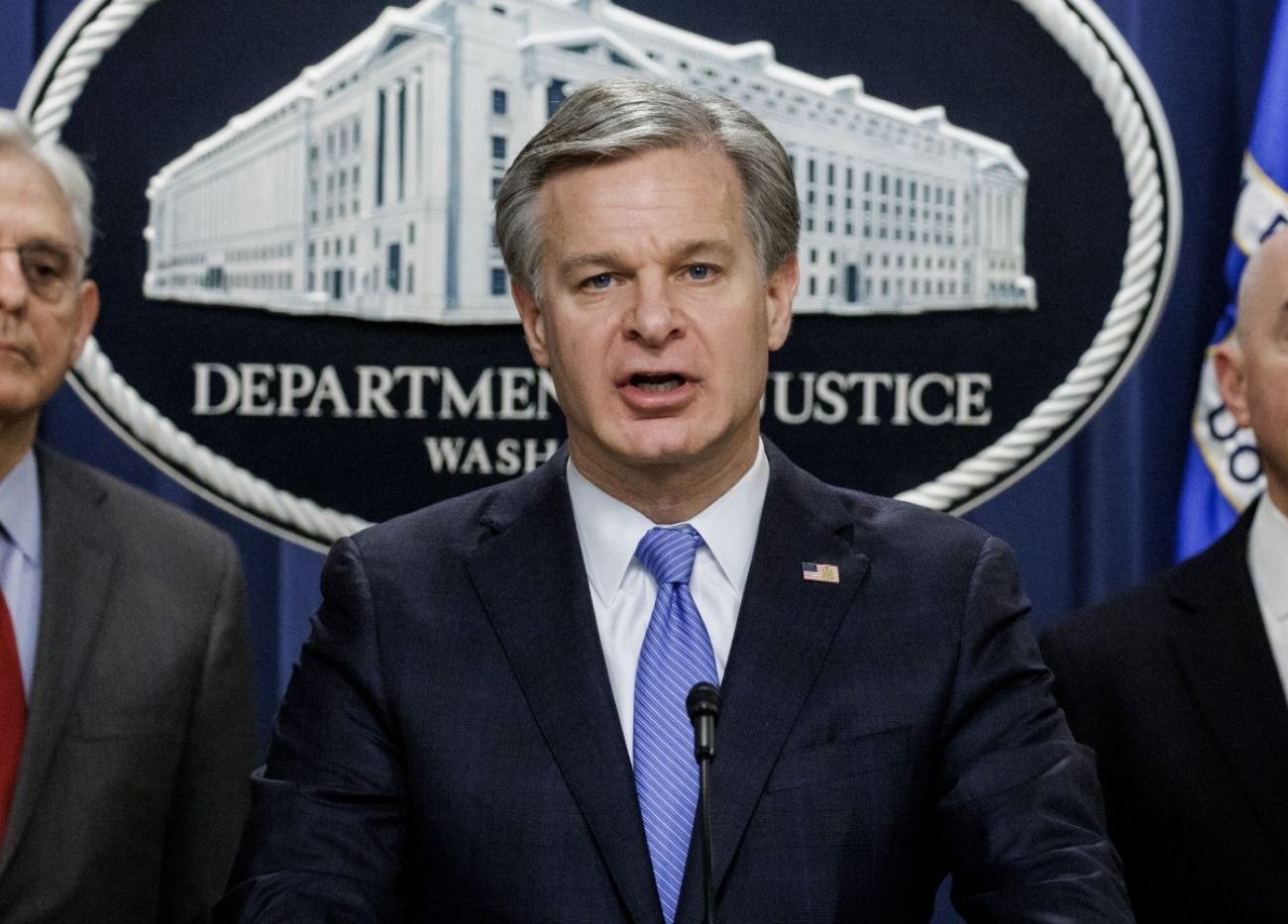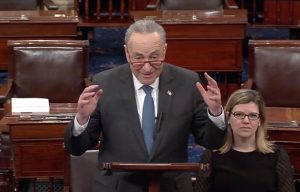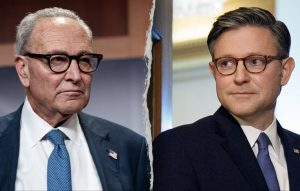A quiet investigation that began months ago inside the Department of Justice has now expanded into one of the most consequential probes in recent memory — and it involves the man who once led the nation’s top law enforcement agency.
Multiple sources and new reports from The Wall Street Journal and CNN reveal that former FBI Director Christopher Wray is the focus of a growing federal inquiry touching on possible misconduct, the destruction of sensitive records, and misleading testimony before Congress.
While details have remained largely sealed behind closed doors, the scope of the investigation—and the high-ranking figures now being drawn in—suggests that federal prosecutors are examining some of the most politically charged issues to emerge from the Bureau in years.
An investigation years in the making
According to The Wall Street Journal, prosecutors have issued subpoenas to several of Wray’s former senior deputies as part of a sweeping review of his tenure during the final years of the Biden administration. The inquiry is said to involve not only Wray’s decisions surrounding politically sensitive cases but also potential coordination with other intelligence officials.
Among those reportedly under scrutiny is former CIA Director John Brennan, whose involvement in the intelligence community’s handling of the Trump–Russia investigation remains a subject of ongoing controversy.
“Former officials have received subpoenas in recent days in the Wray inquiry,” the Journal quoted an unnamed source as saying.
A separate CNN report added that the U.S. Attorney’s Office for the Western District of Virginia is leading the case, which reportedly includes a national security component. Investigators are exploring whether senior FBI officials under Wray’s direction may have destroyed or concealed documents tied to the Durham special counsel investigation into the origins of the Trump–Russia probe.
A seventh-floor mystery
According to multiple sources, investigators are focusing on the use of so-called “burn bags” — containers used to destroy classified materials — inside a restricted section of the FBI’s seventh-floor leadership suite.
Prosecutors are said to be asking whether those bags were used to dispose of documents related to the Durham inquiry, potentially in violation of federal record-keeping laws.
Former and current FBI staff who worked on the seventh floor between 2020 and 2024 have reportedly been interviewed, with investigators also reviewing building logs and internal communications to determine what materials were removed and by whom.
Current FBI Director Kash Patel, who succeeded Wray earlier this year, has confirmed that the Bureau is “fully cooperating” and that he has turned over relevant materials to both Congress and the Department of Justice.
“We’re cleaning up a diseased temple three decades in the making,” Patel said in a May briefing. “The American people deserve the truth — and they’re going to get it.”
Conflicting testimony surfaces
At the heart of the inquiry are questions about whether Wray misled lawmakers during his tenure.
In 2020 and 2021, the then–FBI Director testified under oath that the Bureau had detected “no coordinated national effort” of election interference or voter fraud. Yet a declassified intelligence report recently delivered to Congress by Director Patel paints a different picture.
That report indicates that the FBI had gathered intelligence suggesting that the Chinese government mass-produced counterfeit U.S. driver’s licenses in the months leading up to the 2020 election. According to the document, those fake IDs were allegedly designed to facilitate mail-in ballot fraud benefiting Joe Biden’s campaign.
Republican lawmakers now allege that Wray’s testimony was “materially false” and could constitute perjury under federal law.
Another controversy surrounds the so-called “Richmond product” — a 2023 intelligence memo that labeled “radical-traditionalist Catholics” as potential domestic terrorism threats.
Wray told Congress that the memo originated from “a single field office” and was “withdrawn immediately.” However, subsequent investigations by the House Judiciary Committee revealed that the document was circulated to over 1,000 FBI employees and coordinated with at least two other offices.
A draft version intended for external release repeated similar language linking Catholic traditionalism to violent extremism — prompting widespread backlash from both lawmakers and faith leaders.
Congressional pushback intensifies
Sen. Chuck Grassley (R–IA), who helped expose the internal memo, said Wray’s statements were “inaccurate and incomplete.”
“More than a dozen related FBI products were found across Bureau systems,” Grassley said in a press statement. “That’s not a mistake. That’s an effort to mislead Congress and obscure how widespread the practice really was.”
The conservative legal group Oversight Project has since filed a formal criminal referral to the Justice Department accusing Wray of obstruction of oversight and perjury.
While the DOJ has not publicly commented on that referral, sources close to the matter told The Journal that the same allegations are now part of the broader federal probe.
A Bureau in transition
Director Patel has wasted little time reshaping the FBI since assuming leadership earlier this year. Within months, he dismantled the Bureau’s long-running Washington Field Office corruption unit (“CR-15”), reassigned several senior executives, and cut ties with outside activist organizations — including the Anti-Defamation League (ADL) and Southern Poverty Law Center (SPLC) — calling them “partisan actors with political agendas.”
Patel has also launched a joint initiative with the Treasury Department to trace financial networks allegedly supporting extremist groups such as Antifa.
“Money never lies,” Patel said in July. “We’re following every dollar and every donor until we expose who’s funding chaos in our cities.”
The stakes for Wray — and for the FBI
The investigation into Wray has placed renewed scrutiny on the political culture that developed within the Bureau during and after the Trump presidency.
Supporters argue that Wray tried to uphold the agency’s independence amid intense political crossfire from both parties. Critics, however, claim his tenure represented the height of politicization — an era defined by selective enforcement, internal secrecy, and resistance to oversight.
Former FBI Assistant Director Chris Swecker told Fox News that the allegations, if true, could mark a “watershed moment” for the Bureau.
“If officials destroyed evidence from a federal investigation, that’s a crime,” Swecker said. “If the Director lied to Congress, that’s perjury. Either way, it would confirm what many Americans have suspected for years — that there’s a two-tier system of justice.”
Multiple jurisdictions and expanding reach
Officials say the Western District of Virginia is coordinating with federal prosecutors in Washington, D.C. and Delaware, as well as with the Justice Department’s National Security Division. Investigators from the FBI’s Inspection Division and Office of Professional Responsibility are also said to be assisting.
Legal experts note that potential charges could include obstruction of justice, destruction of government records, or false statements to Congress — all carrying significant penalties.
Former federal prosecutor Andrew McCarthy said that the timeline still allows prosecutors to act.
“The statute of limitations on obstruction and perjury is five years,” McCarthy explained. “So conduct from 2020 or 2021 is still very much within reach.”
Mounting pressure on Capitol Hill
The revelations have reignited long-standing debates in Washington over accountability within federal law enforcement.
House Judiciary Chairman Jim Jordan (R–OH) praised the investigation as “a step toward restoring public trust” and said his committee would hold public hearings on the issue before the end of the month.
“For years we were told there was nothing to see here,” Jordan said. “Now we know there was plenty — and it’s coming to light.”
Democratic leaders have been far more cautious. While most have avoided public comment, one senior aide told reporters that the party intends to “wait for the full findings” before weighing in.
Behind the scenes, however, several moderate Democrats have voiced concern that another high-profile FBI scandal could further erode public confidence in federal institutions already battered by controversy.
A pivotal moment for the Bureau
As of now, neither Wray nor his legal team has issued any public response. The Department of Justice and the FBI both declined to comment on the ongoing investigation.
Still, the inquiry’s trajectory — stretching across multiple jurisdictions and agencies — suggests that federal prosecutors are preparing for a lengthy, complex process that could reshape the FBI’s leadership culture for years to come.
For an agency already struggling to repair its image, the stakes could not be higher. Whether Christopher Wray’s decisions amount to misconduct or misjudgment, the outcome will likely determine not only his legacy but also how Americans view the integrity of their most powerful domestic security institution.

Sarah Mitchell is a bestselling novelist recognized for her insightful and emotionally resonant stories that explore the complexities of human relationships. Originally from Denver, Colorado, Sarah grew up in a family of teachers who nurtured her curiosity and love for storytelling. She studied psychology at Stanford University, where she became fascinated by the intricacies of human behavior—an interest that would later shape her writing career. Sarah’s novels are praised for their nuanced characters, intricate plots, and ability to capture the subtle tensions that define love, friendship, and family ties. Her breakthrough novel, The Spaces Between Us, became an instant bestseller, lauded for its honest portrayal of strained family relationships and the fragile bonds that hold people together. Since then, she has published several works that continue to captivate audiences around the world. Outside of her writing career, Sarah is passionate about mental health advocacy and often partners with organizations to promote awareness and support for those struggling with emotional well-being. Her personal life is quieter—she enjoys hiking in the Colorado mountains, practicing yoga, and spending time with close friends. With each new book, Sarah Mitchell cements her reputation as a writer who illuminates the beauty and struggles of human connection.









